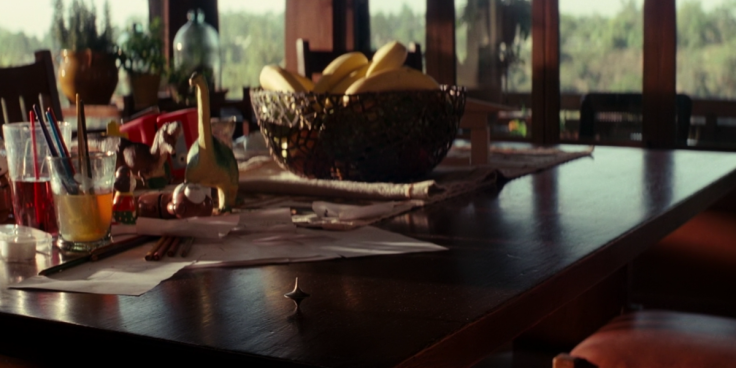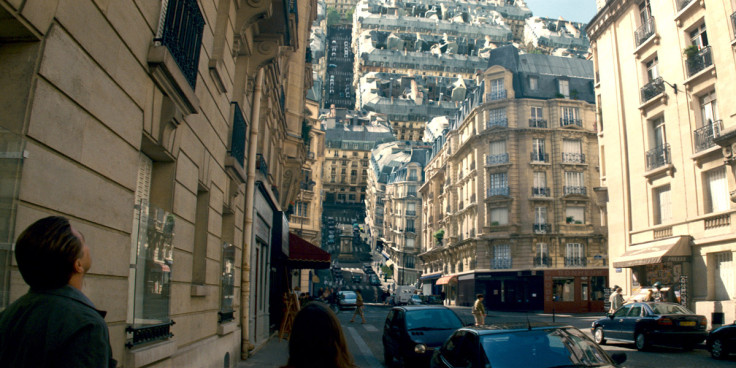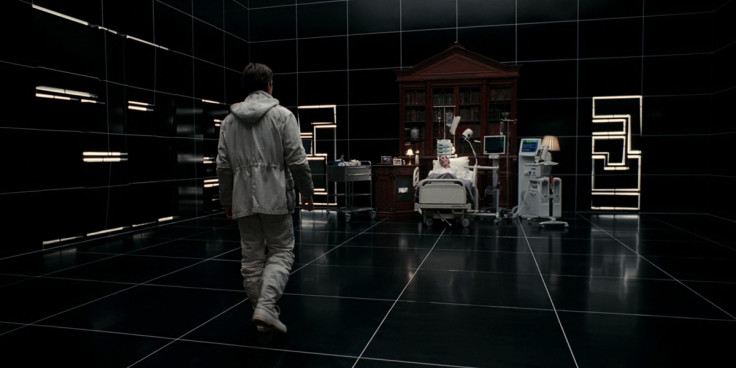Inception: The Films of Christopher Nolan - Part 2
The Art of Lies.

In our continuing series, IBTimes UK takes a look at the work of British director Christopher Nolan in the lead up to the November release of his ninth film, Interstellar. This week we look at Inception, and in part two we talk about that famous ending, the performance of Marion Cotillard and the film as a story about lies.
Inception ends with a big question hanging in the air: is Cobb (Leonardo DiCaprio) still dreaming?
No. No he is not.
In many ways, Inception is just as much to blame for the "it was all a dream" plot twist cliché as TV soap opera Dallas, despite it not being a dream at all. The fact it is, is really a testament to the power of Nolan's film, its final scene and the cultural phenomena it was.
Now, whenever a TV show or film closes in an uncertain way someone will inevitably ask whether it was all in the lead character's head. For example, the endings of Lost, The Dark Knight Rises and Breaking Bad.
In fact, the endings from those three examples were not dreams or figments of someone's imagination and the same can be said for Inception.
Nolan does use techniques to bring dream-like qualities to scenes set in the real world, such as the maze-like overhead shot in Mombasa, the faceless corporations chasing Cobb or the occasional extra glancing at Cobb like someone's conscience does in a dream. However, those aspects are there to reinforce and convey Cobb's own doubt as to what reality really is, which is also why the dream scenes aren't often as surreal as dreams often can be.
Cobb is lost and hopes seeing his children again will bring him back to reality. When he does re-enter America and returns home, he spins his totem one final time, just to be certain his dream being realised is in fact real.

What is significant is not whether the totem would tumble after the camera quick-cuts to the credits but the fact that Cobb turns away and greets his children rather than waiting to see what happens to the totem. This is supposed to signify that Cobb no longer cares whether he is dreaming or not, and that is the real revelation at the film's close.
This is reinforced by the casting of older child actors as James and Phillipa, the fact Cobb is not wearing his wedding band, which he also does not wear in real world scenes, and that the totem he spins is very obviously wobbling when the camera cuts, something it never does when spinning infinitely in dreams.
Inception's complicated ending deserves better than a dismissive "Oh, he was dreaming the whole time, innit?"
It is about Cobb being so happy to see his children after going through so much that he does not care if he is dreaming but this is tinged with the recognition (in the totem wobbling) that he is in fact, in reality, ending the film on an optimistic note.
It is not as clean cut an ending as most Hollywood blockbusters are, of course, and that is part of the film's wider appeal.
Inception is a film that stands separate from 95% of big budget summer films: it's unique and smart, not a sequel or reboot, and with no superhero in sight. It is about a real man dealing with real problems in an outrageous, unbelievable scenario that plays out in a logical way - it is classic science fiction.

Nolan's cast is exceptional with DiCaprio leading the way but it is Marion Cotillard who steals the show as his guilt. Note I say as his "guilt", not his wife, because the Mal we see most often is not the real loving person but the embodiment of Cobb's self-loathing and personal sense of culpability.
She is exactly the kind of femme fatale so prevalent in Nolan's work and by far the best example. Nolan is often criticised for his portrayal of women, so it is ironic the best performance from an actress he has directed is for a character who is not really female but an extension of the male lead's inner torment. Perhaps that in itself could be used against Nolan in this common argument.
Nolan's Inception is about the lies we tell ourselves, the nature of those lies, the solace and discord they can bring us and about the lies we love, such as those told in works of fiction like the film itself.
Cobb's team hopes to foster a lie within a realm of them. A realm the very existence of which is a lie in itself, an illusion of physical presence where there is nothing but consciousness. Cinema is also built on this lie - the illusion of reality and life where all we are really seeing is focused light and screens.
Inception is a masterpiece of thematic storytelling and film editing that provides big spectacle without short-changing emotional depth or treating its audience like fools. It is an example of what for me is the pinnacle of cinema: a perfect popcorn blockbuster.
Next week: The Dark Knight Rises.
© Copyright IBTimes 2025. All rights reserved.





















